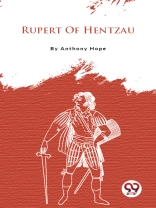The Prisoner of Zenda's sequel, Rupert of Hentzau, was written by Anthony Hope in 1895 but wasn't made into a novel until 1898. From December 1897 to June 1898, the book was serialized in The Pall Mall Magazine and Mc Clure's Magazine. A supporting character from The Prisoner of Zenda's framing narrative provides the story's setting. According to the framing, the incidents described in both works happened in the late 1870s and early 1880s. Three years after Zenda's ending, this narrative picks up with the same imaginary nation—the kingdom of Ruritania—somewhere in Germanic Middle Europe. The majority of the same characters appear again and again: Rudolf Elphberg, the scheming absolute ruler of Ruritania; Rudolf Rassendyll, the Englishman who had served as his political stooge and was his distant cousin and doppelganger; Flavia, the princess, now queen; Rupert of Hentzau, the dashing well-born villain; Fritz von Tarlenheim, the obedient courtier; Colonel Sapt, Rassendyll receives a formal funeral and is buried as the King, but Sapt and Rassendyll's servant James set the King's body on fire at the hunting lodge, rendering it unrecognizable. As the final member of the Elphberg dynasty, Flavia continued to rule alone after Rudolf V's burial as Rudolf Rassendyll.
Anthony Hope
Rupert of Hentzau [EPUB ebook]
Rupert of Hentzau [EPUB ebook]
¡Compre este libro electrónico y obtenga 1 más GRATIS!
Idioma Inglés ● Formato EPUB ● ISBN 9789357275958 ● Tamaño de archivo 0.6 MB ● Editorial Double 9 Books ● Publicado 2023 ● Descargable 24 meses ● Divisa EUR ● ID 8867355 ● Protección de copia Adobe DRM
Requiere lector de ebook con capacidad DRM












